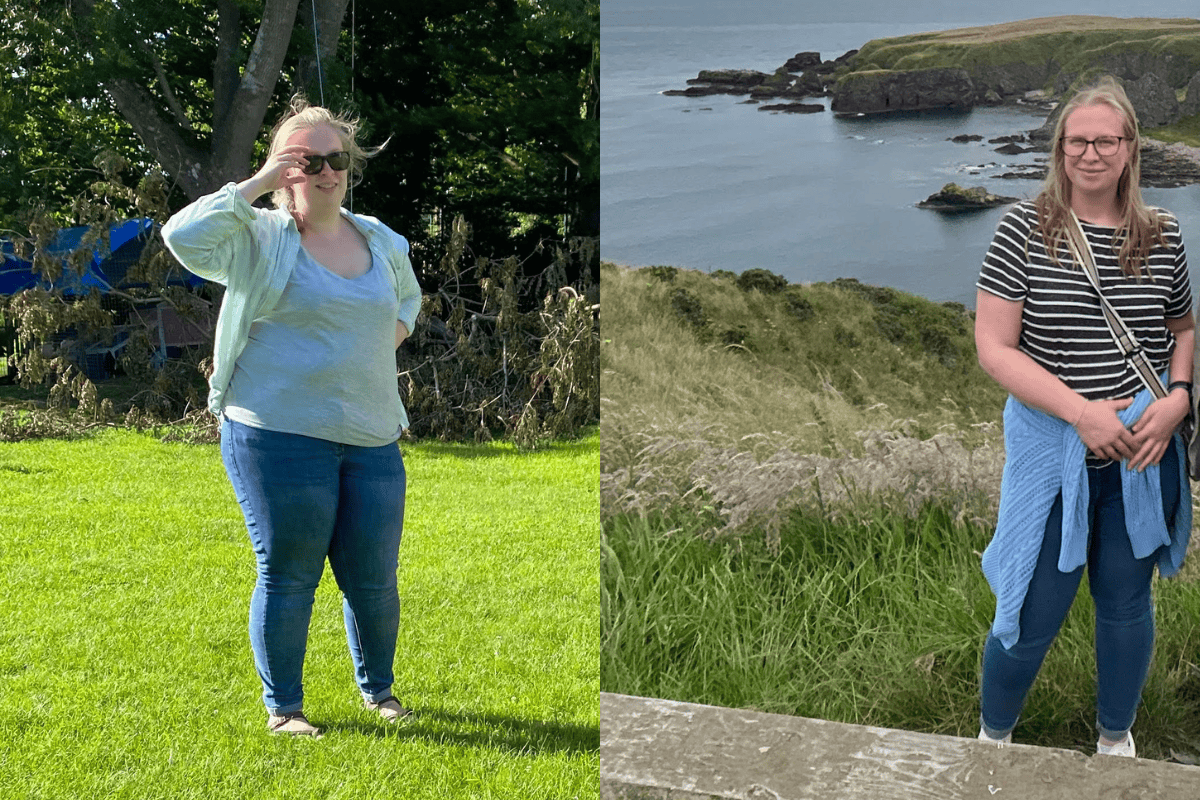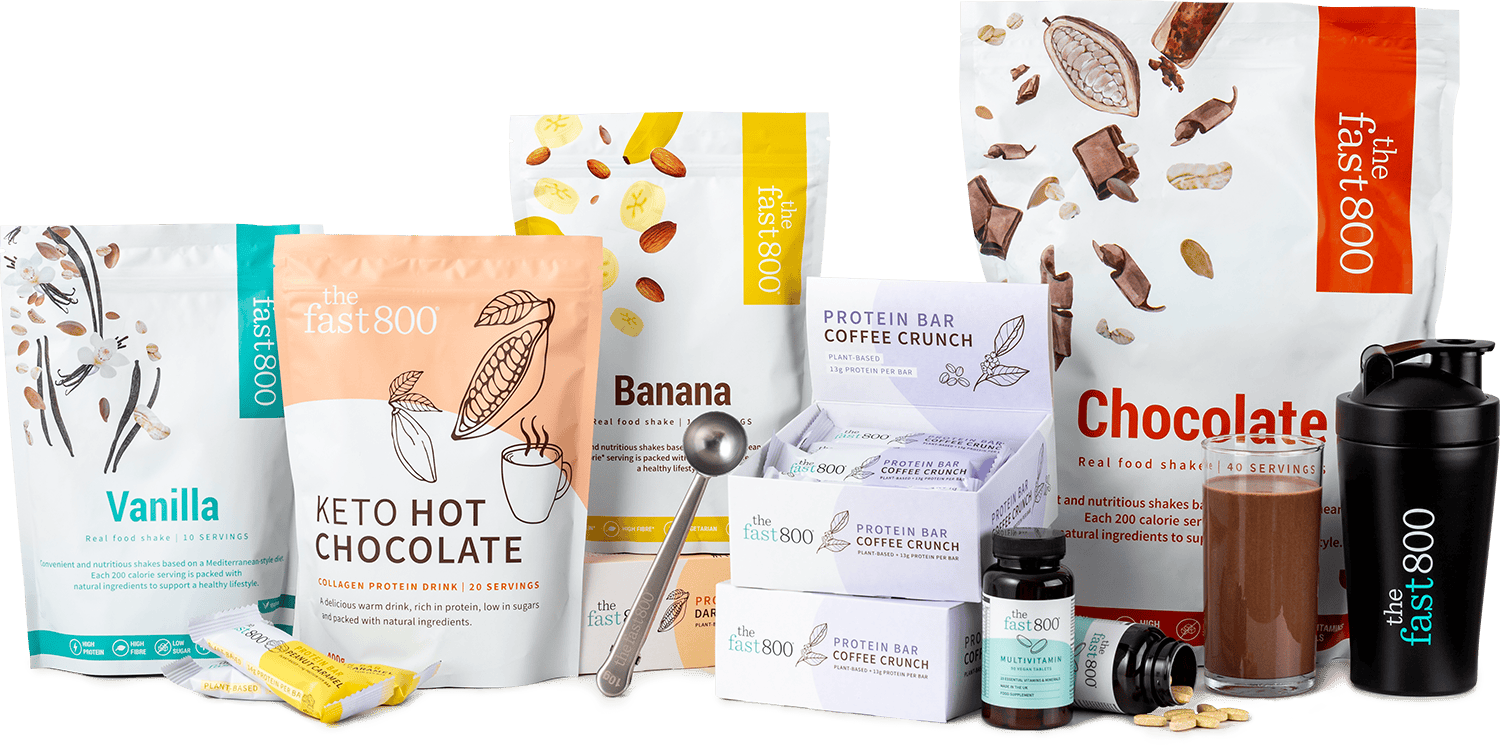What is Perimenopause?
Menopause is the umbrella term used for the time in which your body begins to naturally stop having periods, up to the time you no longer menstruate at all. As the ovaries begin to slow down, it causes a decline in progesterone and oestrogen which are the hormones in charge of your menstrual cycle. Frequently, when people say they’re “going through the menopause”, they’re actually referring to the stage that is known as ‘perimenopause’. So, what is perimenopause?
When does perimenopause start?
Studies show that reproductive hormone changes can be seen 8 to 10 years ahead of menopause during ‘premenopause’, however in premenopause you experience no noticeable changes in your body yet.1
Following premenopause comes the perimenopause stage. This is marked by a significant drop in the hormones in charge of reproduction and is the transitional phase that indicates an end to your reproductive years. During this time, you will have symptoms of menopause but your periods will not yet have fully stopped. It’s often referred to as a ‘second puberty’, and can last anywhere from two to 12 years until you have not had a period for 12 months.
Unfortunately, perimenopause often sets in motion a whole host of uncomfortable symptoms.
Our 12-week programme is an online course to help you lose weight, and keep it off long-term. While many members join to lose weight and improve blood sugars, they continue on this way of life with better sleep, more energy and ongoing confidence.
START YOUR FREE TRIAL
What are the common symptoms?
If the questions “what is perimenopause?” and “how will it affect me?” are on your mind, then a good place to start is looking at its common symptoms. Perimenopause is associated with symptoms such as:
- Irregular periods, often heavier or lighter than normal
- Hot flashes
- Night sweats
- Difficulty sleeping2
- Heart palpitations
- Forgetfulness and concentration difficulties
- Mood swings and/or depression and anxiety3
- Changes in libido and vaginal dryness
- Weight changes
- Hair loss
As well as these common physical symptoms, perimenopause is also associated with an increased risk of developing more concerning health conditions such as:
- Osteoporosis4
- Heart disease5
- Breast cancer6
How to prepare for perimenopause
While the symptoms of perimenopause may seem concerning, there are several steps you can take to lessen the impact of symptoms and prepare for perimenopause. But what is perimenopause prep, and how can you best prepare?
- Start making lifestyle changes now: It’s never too early to start preparing for a positive perimenopause journey. By making a few key lifestyle changes now, you’ll ensure your body has longer to reap the benefits. Improving your diet, daily activity, and reducing stress can have huge effects on your perimenopause experience.7 If you need a little guidance, head to The Fast 800 Programme where you’ll find recipes designed by our team of nutritionists, exercise videos led by our fitness experts, and even mindfulness videos to help keep you motivated and more calm during this time of change.
- Eat a Mediterranean-style diet: A Mediterranean-style diet has been shown time and time again to be the healthiest way of eating, but it’s particularly effective for preparing for menopause. It helps maintain a healthy weight, combating the natural weight gain that often occurs during perimenopause, and it protects against the conditions you’re put at higher risk of developing, like cardiovascular diseases. What’s more, a Mediterranean-style diet is naturally high in protein and fibre, supporting brain health, sleep, mood, and joint, bone and skin health, all of which are important to take extra care of in the run up to perimenopause.8
- Up your exercise: Studies have shown that exercise improves menopause symptoms like insomnia, weight gain and anxiety. In the run up to perimenopause some exercises are better than others. HIIT (High intensity interval training) can help with limiting menopause weight gain as it burns 25%-30% more calories than regular cardio, and similarly weight training is particularly effective at strengthening bones and joints, thereby reducing your risk of developing osteoporosis post-menopause.9 Furthermore, for generally decreasing menopause symptoms, Pilates three times a week has been shown to significantly decrease unwanted symptoms.10 For exercise guidance including beginner videos on all of these key exercises, head to The Fast 800 Programme.
- Lower your alcohol intake: You may wonder what is perimenopause to do with alcohol? Studies have found that regularly consuming alcohol negatively impacts several uncomfortable perimenopause symptoms, like night sweats and hot flashes.11 Reducing your alcohol intake has also been associated with a reduced risk of developing breast cancer.12 We recommend drinking mindfully both before and during perimenopause to help reduce symptom severity.
- Join a community: Perimenopause can feel like a lonely time. Evidence shows that oestrogen fluctuations place you at an increased vulnerability to depression and anxiety, so it’s important to have a community in place in the lead up to perimenopause so you can get to know others who are going through a similar thing, and know that you’re not alone in the journey you’re about to be on. This is why The Fast 800 Programme has a whole dedicated menopause Community, so our members always feel supported, and have a judgement-free space to ask questions like ‘what is perimenopause?’ to others who have gone through it.
We often get questions like ‘what is perimenopause?’ and how can you prepare for it, so hopefully this article has given you the answers you need to go forward into this life stage with a little more clarity. For exercise videos, healthy recipes, communities and on-hand support from our team of health experts, sign up to your 7-day free trial of The Fast 800 Programme today.
https://my.clevelandclinic.org/health/diseases/21837-postmenopause
Baker FC, Lampio L, Saaresranta T, Polo-Kantola P. Sleep and Sleep Disorders in the Menopausal Transition. Sleep Med Clin. 2018 Sep;13(3):443-456. doi: 10.1016/j.jsmc.2018.04.011. PMID: 30098758; PMCID: PMC6092036.
Kulkarni J. Perimenopausal depression – an under-recognised entity. Aust Prescr. 2018 Dec;41(6):183-185. doi: 10.18773/austprescr.2018.060. Epub 2018 Dec 3. PMID: 30670885; PMCID: PMC6299176
Lo JC, Burnett-Bowie SA, Finkelstein JS. Bone and the perimenopause. Obstet Gynecol Clin North Am. 2011 Sep;38(3):503-17. doi: 10.1016/j.ogc.2011.07.001. PMID: 21961717; PMCID: PMC3920744.
https://www.ncbi.nlm.nih.gov/pmc/articles/PMC10074318/
Surakasula A, Nagarjunapu GC, Raghavaiah KV. A comparative study of pre- and post-menopausal breast cancer: Risk factors, presentation, characteristics and management. J Res Pharm Pract. 2014 Jan;3(1):12-8. doi: 10.4103/2279-042X.132704. PMID: 24991630; PMCID: PMC4078652.
Kuck MJ, Hogervorst E. Stress, depression, and anxiety: psychological complaints across menopausal stages. Front Psychiatry. 2024 Feb 22;15:1323743. doi: 10.3389/fpsyt.2024.1323743. PMID: 38455517; PMCID: PMC10917984.
Al-Anazi AF, Qureshi VF, Javaid K, Qureshi S. Preventive effects of phytoestrogens against postmenopausal osteoporosis as compared to the available therapeutic choices: An overview. J Nat Sci Biol Med. 2011 Jul;2(2):154-63. doi: 10.4103/0976-9668.92322. PMID: 22346228; PMCID: PMC3276006.
Falcone PH, Tai CY, Carson LR, Joy JM, Mosman MM, McCann TR, Crona KP, Kim MP, Moon JR. Caloric expenditure of aerobic, resistance, or combined high-intensity interval training using a hydraulic resistance system in healthy men. J Strength Cond Res. 2015 Mar;29(3):779-85. doi: 10.1519/JSC.0000000000000661. PMID: 25162652.
Lee H, Caguicla JM, Park S, Kwak DJ, Won DY, Park Y, Kim J, Kim M. Effects of 8-week Pilates exercise program on menopausal symptoms and lumbar strength and flexibility in postmenopausal women. J Exerc Rehabil. 2016 Jun 30;12(3):247-51. doi: 10.12965/jer.1632630.315. PMID: 27419122; PMCID: PMC4934971.
Leidy Sievert, L., Makhlouf Obermeyer, C., & Price, K. (2006). Determinants of hot flashes and night sweats. Annals of Human Biology, 33(1), 4–16. https://doi.org/10.1080/03014460500421338
Naomi E. Allen, Valerie Beral, Delphine Casabonne, Sau Wan Kan, Gillian K. Reeves, Anna Brown, Jane Green, on behalf of the Million Women Study Collaborators, Moderate Alcohol Intake and Cancer Incidence in Women, JNCI: Journal of the National Cancer Institute, Volume 101, Issue 5, 4 March 2009, Pages 296–305, https://doi.org/10.1093/jnci/djn514











